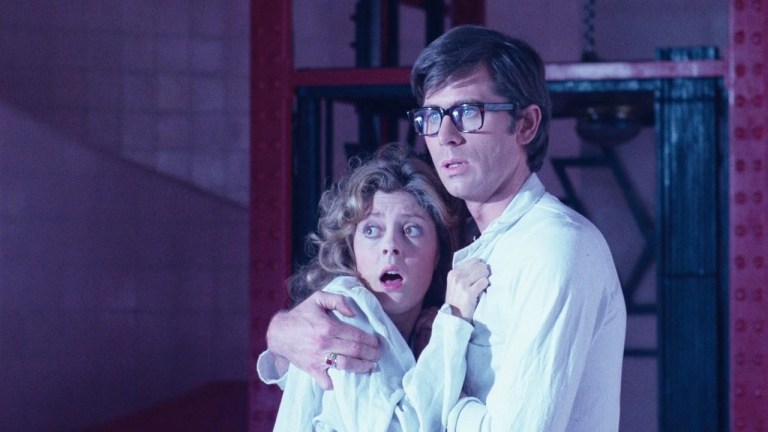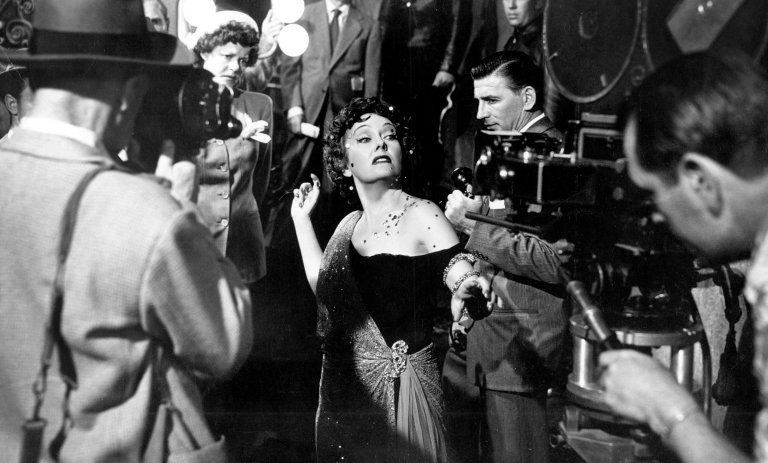
‘Tár’ Is The Latest #MeToo Movie That No One Actually Needed
Sexual harassment is wrong—period, end of sentence. No matter who is in the position of power. As a woman, it is mentally and emotionally difficult to process the sheer amount of offenses exposed in past years by the media and later reinterpreted in art. We have documentaries on the USA gymnastics abuse scandal, The Morning…
We bought tickets to Tár for the obvious reasons—obvious to women in relationships with other women. For those not in the know, Cate Blanchett’s Oscar-nominated performance in 2015’s lesbian period piece Carol solidified her status as a (if not the) queer icon, to the extent that her presence in the cast of Ocean’s 8 led to an inundation of internet video clips bent on documenting a case for an off-screen chemistry between her and Sandra Bullock.
However entertaining said videos may have be, Blanchett has been married to spouse Andrew Upton since 1997, and without placing anyone in a box, it seems safe to rely on 25 years of precedence when assessing the probability of Blanchett and Bullock becoming Hollywood’s new “it” couple. Although, 2022 did bring us the nuptials of Bennifer, so to the delight of all the stans out there, the famous Dickensian proverb “Never say never” must apply.
The point is that Blanchett’s allure with the LGBTQ+ community exists independently from her own orientation. Casting her in and of itself has the potential to draw queer audiences into theaters the same way projecting a bat logo into the sky is a proven method for summoning Batman.
The choice then, to write Blanchett’s role as a lesbian and cast her alongside French actress Noémie Merlant, known for her breakout performance in 2019’s lesbian period drama Portrait of a Young Lady on Fire, must have been intentional, if not calculated. Other films have attempted to crack this hypothetical formula for an award-winning LGBTQ+ film, usually a period piece—2020’s Ammonite for example—but even talent of the caliber of Kate Winslett and Saoirse Ronan was not enough to do the trick.
If there is anything to be considered problematic about the film (and there is), I can’t necessarily pin it on this pairing. If there is room in this commercial industry for a never-ending slew of superhero films to satisfy the Marvel-lovers of the world, then there must also be room for artsy films with award-winning actresses and gay storytelling. Give the people what they want. Let them spend their money on it. I was one of those people. I spent my money. But unfortunately, casting was the only one of these criteria that Tár fully delivered on and the performances themselves were the only thing holding it together.
Blanchett and Merlant’s performances are foils to each other in the way that musical notation cannot have a forte if there is no piano to compare it to. Everything about Blanchett’s Lydia Tár, from her tailored designer suits to the way she blackmails a school-girl in expat German, is strong as it is harsh. Merlant, as Tár’s assistant, Francesca, weaves a character made of glances and silences, inconspicuously gliding in and out of shots with the purpose, if not mandate, to not disturb her employer.
This dynamic between middle-aged celebrity and assistant is akin to yet another award-winning drama with lesbian undertones, 2014’s Clouds of Sils Maria, but where Juliette Binoche and Kristen Stewart created a slow-burning sexual tension that fueled a poetic anti-climactic finale, Tár seems devoid of any true chemistry, likely by design.
All of the desire in this film is one-sided. Francesca longs for Tár’s approval and affection, as do the many others who surround her, but we don’t see any genuine interest returned, only the insinuation that it once was. Francesca is perhaps the first of many inappropriate relationships Tár begins in professional settings. Where they have remained on good terms, others like former student Krista Taylor, who is first painted as a potential stalker, represent the opposite extreme. Krista’s suicide following Tár’s hand in her ostracism from the classical music community becomes the plot catalyst in a psychological thriller without a real horror scene. Tár lusts after her latest target conquest, Russian cellist Olga, the same way colleague Eliot lusts after her performance score, and both are met with thinly veiled dismissal. As Tár’s wife Sharon comments in the film, the only relationship that isn’t transactional in this world exists between Lydia and her daughter Petra. Her only true passion is music.
At its core, despite the potential to be many other things, Tár is a one-dimensional spin on a #MeToo film without an insightfully new point of view. It is here that the choice of a lesbian protagonist becomes problematic. Even if we ignore the stereotype of lesbian as predator, the decision to only reverse the gender of sexual aggressor leaves us with women in a seemingly inescapable role as victims of harassment.
The choice also implies a test and a question: Will we as the audience be more lenient with Tár because she is a woman, and if we are, has society been too harsh on the men who have made headlines for similar behavior? The setting of this cultural examination within the world of classical music attempts to elevate the provocation beyond cancel culture to a philosophical level: Is the value of art unable to be tarnished by the sins of the artist?
Can Tár herself be considered a true artist? We hear Olga play a few notes from the song Tár claims to be composing for her daughter, but there is so little to listen to, it is hard to imagine this is the work of a Juilliard professor and internationally acclaimed conductor. Someone who touts the epithet maestro.
Tár’s true skills seem to be in interpreting not only music but the specific intentions of the composer while in the act of composing. While sharing her analysis of Mahler’s 5th Symphony, she claims to disagree with a mentor on the interpretation of the music, claiming the dedication to a new wife is evidence that the music illustrates a pure concept of love and not the complicated relationship which later developed after the symphony was composed.
We never hear Tár record the last symphony in her series with the Berlin orchestra, as her professional and personal life unravels due to complications of her own. The film is rich in such juxtapositions and symbolism, touches like a copy of Vita Sackville-West’s Challenge, maze drawings with an implied connection to Krista that appear in personal spaces belonging to Tár, Francesca’s title change to Tár’s autobiography Tár on Tár to Rat on Rat, paired with Tár’s moment of terror in what appears to be a literal sewer, with her as the sewer rat.
These clues are strewn like breadcrumbs amidst a backdrop of beautiful cinematography, dialogue, acting, and sound design — everything you need to mentally masturbate for two hours and 38 minutes, attempting like Tár to arrive at an analysis of profound artistic meaning before the credits role, except in this case the credits kick off the film. When the ending does finally arrive, it is anticlimactic but without the intentional fit of Sils Maria. Tár’s fall from glory ends in Southeast Asia, where she is conducting a group of young musicians in screening of a cult sci-fi film. Her real name is Linda. We see her childhood bedroom, within a seemingly middle class home. We realize she had climbed her way up to the top, only to lose it all.
Do these details spell an attempt at pathos? It is hard to say. The hill Tár insists on dying on throughout the film is her belief that the artist’s intent is what matters most in her field. What the music can make you feel. It’s unclear what director, writer, and producer Todd Field’s over-arching intention was with Tár. Some critical theorists disagree that a biographical approach to art becomes futile once the death of the author leaves any original intentions a mystery. That art has the potential to become something quite different from what its creator intended. Exposing her flaws and detailing her downfall at length may be Field’s way of pointing out that she is an unreliable source on the topic, one that the audience should purposefully disagree with here, as well as with her conduct.
The ambiguity creates an uncomfortable gray space I can’t get on board with. Sexual harassment is wrong—period, end of sentence. No matter who is in the position of power. As a woman, it is mentally and emotionally difficult to process the sheer amount of offenses exposed in past years by the media and later reinterpreted in art. We have documentaries on the USA gymnastics abuse scandal, The Morning Show, and Bombshell. I’m not sure Tár was a necessary addition or brought anything new or of value to the conversation.











